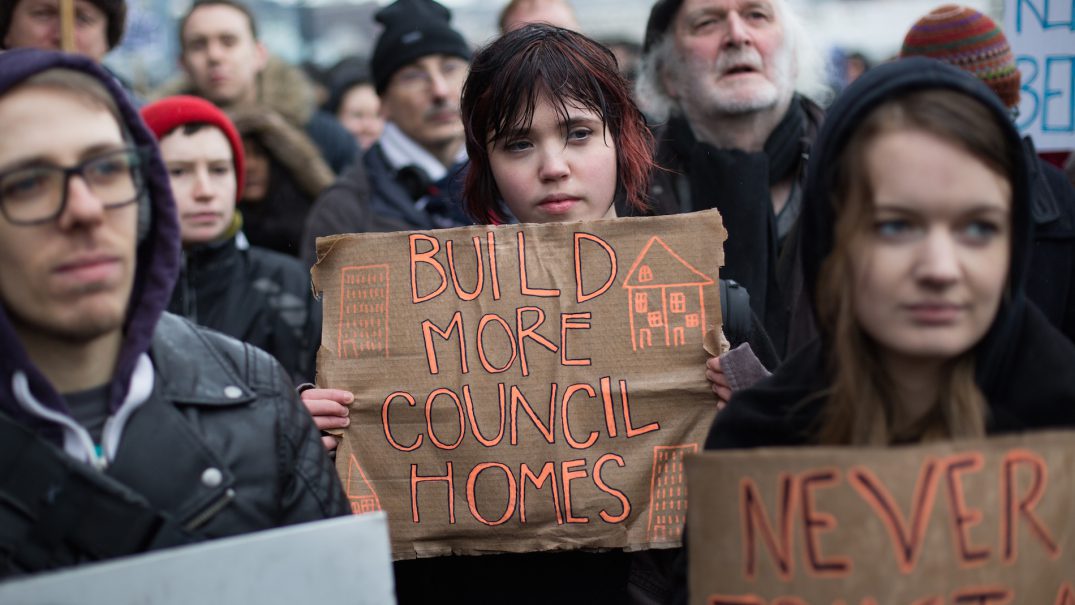An ‘Affordable Urban Density Fund’ to build homes

Demonstrators holding placards in a demonstration demanding solutions to the housing crisis and for better housing in London gather together in front of the City Hall, London. 31st January 2015. Daniel Leal-Olivas/PA
The obvious thing we need to fill this gap is new, properly affordable, homes to rent. At social rents for the lowest paid workers in shops, cleaning and delivering, and at a ‘living rent’ (around a third of take-home pay) for those the wages paid to people in the public sector. Both are essential groups of workers currently priced further and further away from our city centres.
The big problem is that new housebuilding projects with a combination of social and affordable rented homes aren’t top of the list for the big companies doing most of the big development schemes in our cities. But they’re a hugely important goal for housing associations, councils and long-term investment funds like pensions, and for the growing number of people getting together proposals for a new generation of co-operative housing. The government should work with such groups to promote the growth in affordable housing. In our cities there is public land that is ideal for these low- and non-profit sectors, much of it near transport services and stations. In the capital, Transport for London has already identified over 120 hectares of land in large plots, and is working on the next tranches of medium and small sites around its network and depots.





